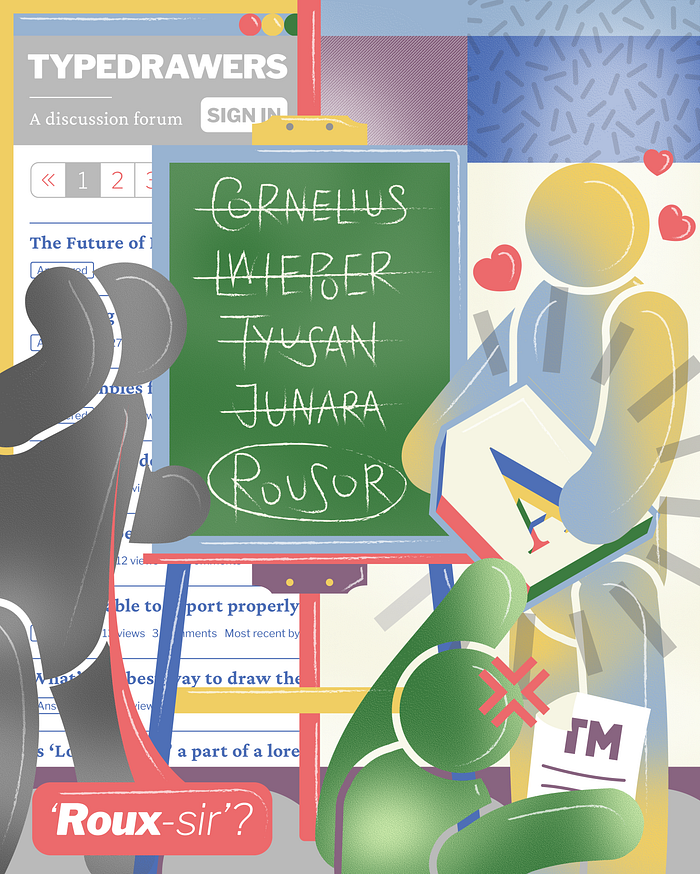Member-only story
Font names, and plagiarism
Call a font well, and don’t let someone call the lawyer on you.

An Apology
I recently released a font named Newt. It’s a typeface that remixes one of my older works but with a more squared-off alphabet design.
In the comments section of the font website, a user named Kyyle reached out, apologising for using the same name for their type project. My instinct was to reassure them — after all, font names are just names. Multiple people will inevitably come up with the same one, just as countless parents name their children Michael or their black-and-white pets Oreo.
However, I hesitated. I had already seen how a type designer once accused a fellow designer of plagiarism because their typefaces looked similar. Intellectual property (IP) is precious, especially in the creative world. But does that concern extend to naming as well? A quick search on a typography forum revealed the answer: yes.
The Law

In March 2020, Ariq Syauqi started a discussion on TypeDrawers.com titled ‘Is it (still) unethical to use the same font name?’
“If you ask me, considering the growing numbers of fonts, I think it’s just ethical to use the same name of fonts [as other type foundries] as long as it’s not a made-up word. Just like some bands sharing the same title for their songs.”
Most respondents disagreed. Some quickly pointed out that, especially in the U.S., using a trademarked font name could lead to legal trouble.
For example, a 1995 U.S. court case found the URW type foundry guilty of not only copying Monotype Corporation’s typefaces but also attempting to pass them off as their own by making slight name changes — such as converting Bembo to Bemtus (Pp. 47–48). The court ruled that URW’s practice of adding “worthless” suffixes constituted trademark infringement, as it was designed to confuse consumers.

